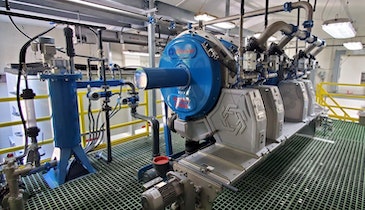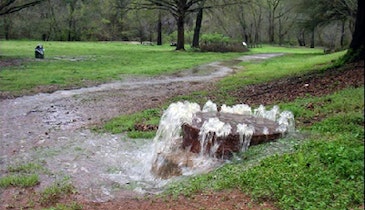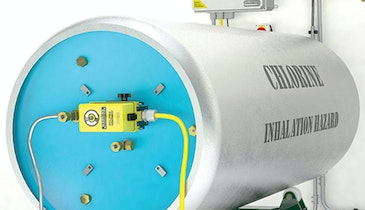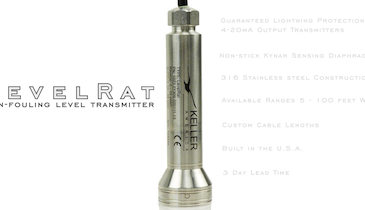Interested in Education/Training?
Get Education/Training articles, news and videos right in your inbox! Sign up now.
Education/Training + Get AlertsWASTEWATER
By Rick Lallish
Oxidation-reduction probes read changes in potential when dissolved oxygen is present and not present. ORP readings of -200 mV typically indicate what condition?
A. Anoxic conditions
B. Aerobic conditions
C. Anaerobic conditions
D. Fouled probe tip/sensor
ANSWER: C. Oxidation-reduction probes are very useful in reading conditions of aerobic, anaerobic and anoxic processes. ORPs are vital for proper operation of many biological nutrient removal processes. They can indicate nitrification or denitrification conditions. Nitrification readings are typically in the +150 to +350 mV range, and denitrification usually -50 to +50 mV. Anaerobic conditions vital for biological phosphate removal or anaerobic digestion readings are typically -200 to -400 mV. More information may be found in the WEF textbook: Wastewater Treatment Fundamentals I: Liquid Treatment, Chapter 9.
DRINKING WATER
By Drew Hoelscher
What contaminants does the UCMR 5 focus on, and when is the sampling period?
A. Nanomaterials, 2023-25
B. PFAS and lithium, 2023-25
C. Legionella bacteria, 2024-25
D. Nitrosamines, 2025-26
ANSWER: B. The SDWA requires the EPA to issue a UCMR every five years. This allows the EPA to collect data on certain contaminants throughout the nation. UCMR 5 was published on Dec. 27, 2021, and lists 29 PFAS and lithium as the contaminants to monitor. Every public water system serving more than 3,300 people, and some small systems serving fewer people, will collect samples between 2023 and 2025. The EPA will release all of the UCMR 5 data in 2026.
ABOUT THE AUTHORS
Rick Lallish is water pollution control program director and Drew Hoelscher is program director of drinking water operations at the Environmental Resources Training Center of Southern Illinois University Edwardsville.





